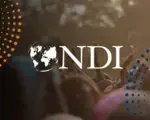Local
Displaying search results 401 - 410 of 5109

Presidential Runoff
Ukraine Presidential (Second Round) 2004

Parliamentary
Namibia Presidential/Parliamentary Election 2004

Presidential
Niger Presidential Election 2004

Local
Nicaragua Local Election 2004

Parliamentary
Czech Republic Parliamentary Election 2004

Local
Venezuela Local Election 2004

Presidential
Ukraine Presidential Election 2004

Parliamentary
Kosovo Parliamentary Election 2004

Parliamentary
Belarus Parliamentary Election 2004

